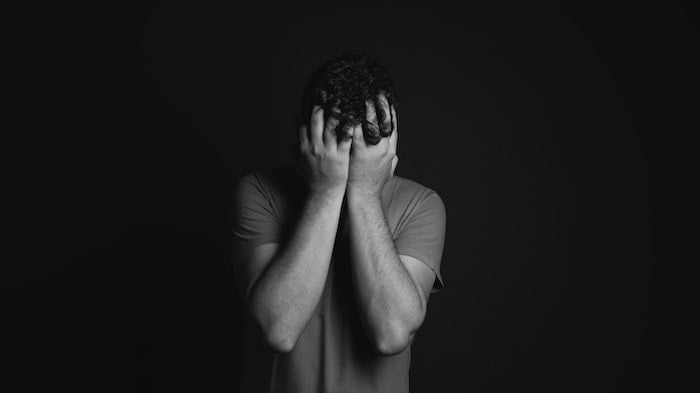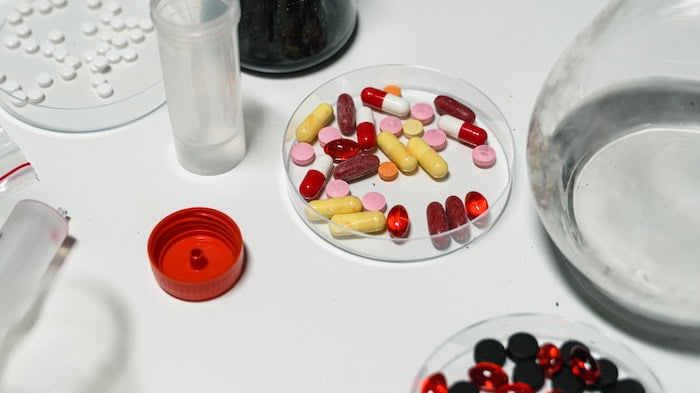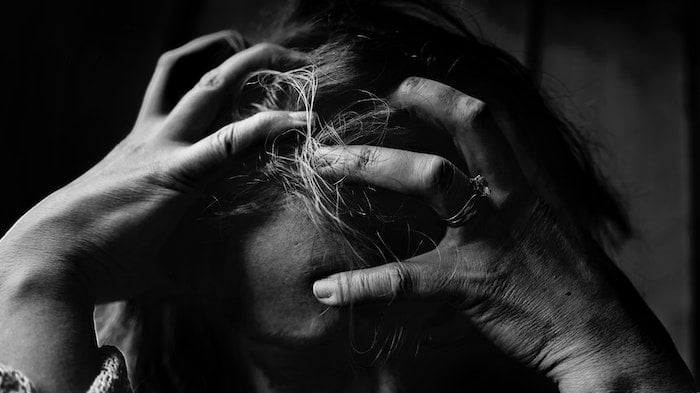- Home
- Addiction Guides
- The Risk Factors of Addiction
The Risk Factors of Addiction
Addiction is not a moral failing, as most people presume, but it is an addiction.
This addiction affects and controls the brain system that controls how you experience reward, motivation, emotions and memory.
When someone abuses drugs and alcohol, the chemicals create a pleasurable sensation which the body and brain then goes on to crave.
When the individual consumes the drug again, their tolerance has increased which means that they do not experience the same level of sensation that they used to. As a way of overcoming this, they consume more.
Once they consume more and more, their tolerance increases and their body becomes increasingly addicted and eventually reliant on the addictive substance.
Symptoms of Addiction

Addiction causes a whole host of side effects in its obsessive pursuit of reward and pleasure. Some of these side effects include the following:
- Not being able to stop consuming the drug
- A lack of self-control
- Becoming more aggressive and emotional than usual
- Lacking in emotion
- Remaining in complete denial, despite people telling you that you are addicted to drugs or alcohol
- Experiencing withdrawal symptoms if you stop consuming for a few hours or a few days
- Lying and deceiving loved ones and family members to continue abusing drugs and alcohol
- Intense cravings for the drugs
- Driving whilst intoxicated or taking part in other forms of risky behaviour whilst intoxicated
- Losing friends and family members because of your addiction
- Losing your job and income due to your addiction
- Struggling to manage your time, and often finding yourself running late
If you can recognise some of the above symptoms, either in yourself or in someone that you know, then you should speak to your local GP to see if you can get help for your addiction.
Speak to a member of the Rehab Recovery team for advice and support on the different ways to gain access to treatment on 0800 088 66 86.
What are the Risk Factors of Addiction?

If you are addicted to alcohol, or know someone who is, then you might be interested to know that there are a number of risk factors involved when it comes to addiction.
These risk factors make it more common and likely that someone will gain an addiction to drugs and alcohol at some point in their life.
Some of these risk factors have a direct influence, and some are indirect.
However, it is important to understand that whilst some of the below risk factors do increase the chances of someone developing an addiction to drugs and alcohol, it does not mean that they definitely will.
Below are some of the risk factors that increase the chance of someone developing an addiction to drugs and alcohol:
1. Genetics
Unlike what most people think, addiction is not a moral failing. People do not just become addicted to drugs and alcohol because they are weak, irresponsible or lack willpower.
People become addicted to drugs and alcohol because the chemicals in their brain and body create dependency and addiction.
Unfortunately, genetics play a huge role when it comes to the risk factors of addiction. In fact, according to the National Institute on Drug Abuse up to 50% of your risk of addiction to cigarettes and other drugs is based on your genetics [1].
This means that if someone in your family, particularly your mother or father is addicted to drugs, or has been in the past, then you are also more likely to become addicted to drugs and alcohol at some point during your life.
In addition to this, if one of your parents or close family members has an ‘addictive personality’ without touching drugs, then you also might be at risk of developing an addictive personality that could eventually lead to an addiction to drugs and alcohol in the future. This could include an addition to cigarettes, gambling or sex.
2. Environment

It is not just genetics that can increase your chances of developing an addiction to drugs and alcohol. In fact, your environment, both as a child and an adult has a large impact on whether you will develop an addiction to drugs or alcohol or not.
If you are surrounded by people doing drugs and alcohol as a child, whether that is at home or in your friendship group, then this will lead to a greater risk of developing your own addiction or at least experimenting with drugs and alcohol at some point in your life.
In addition to this, if you experience abuse and neglect as a child then you are also at a greater risk of developing an addiction to drugs and alcohol in the future. Children might turn to these substances as a way of controlling and dealing with their emotions.
If your friends and peers also abuse drugs, then you are also at risk. Peer pressure is a huge part of growing up, and pressure from peers can create a huge pressure and expectation that they need to experiment or abuse drugs in order to ‘fit in.’
Growing up is a hard time for anyone, and lots of people take part in risky behaviour that they might not necessarily want to do, in order to fit into certain friendship groups.
With more and more children aged under 18 abusing different types of drugs and alcohol, peer pressure is becoming a huge underlying cause and risk factor when it comes to addiction.
However, your environment isn’t just a risk factor when you are a child. In fact, lots of adult friendship groups and workplaces can be a huge driver of addiction.
Lots of workplaces now operate under the ‘work hard, play harder’ motto, which results in many people abusing drugs and alcohol as a way of managing an increased workload.
It is important to remember that even as an adult, peer pressure and your environment can play a huge part in addiction.
In addition to this, if you are currently recovering from an addiction, then your environment will have a huge part to play in your recovery.
Upon returning home, you will need to ensure that you place yourself in a happy and drug and alcohol-free environment, to avoid a relapse occurring.
3. Dual Diagnosis & Mental Health Issues

If you suffer from a mental health issue, then you are more likely to develop an addiction which will turn into a dual diagnosis. A dual diagnosis is when someone suffers from an addiction issue alongside a mental health issue, and is very common for a number of different reasons.
If you suffer from a mental health issue, then you might be tempted to turn to drugs and alcohol as a way of getting away from your mental health issues.
Lots of people who are suffering from depression and anxiety might turn to cannabis and cocaine to experience a sense of calm or an increased sense of energy.
They might also turn to drugs and alcohol as a way of controlling how they feel on a day-to-day basis.
Likewise, if you abuse drugs and alcohol then you put yourself at an increased risk of developing a mental health issue.
This is because drugs and alcohol contain chemicals that enter your system and your brain which can contribute to mental health issues such as depression, paranoia and schizophrenia.
4. Early use

Early use also has a large impact on whether you are likely to develop an addiction to drugs or alcohol or not.
In fact, a study carried out by the National Institute on Drug and Alcohol Abuse found that people aged between 18 and 24 years old were more likely to suffer from a drug and alcohol addiction disorder than those aged older [2].
If you abuse drugs at a young age, then you are more likely to abuse drugs as you get older too.
Abusing both drugs and alcohol at a young age does make you more likely to abuse drugs and alcohol in the future, as your brain is still developing at a young age and can become more easily manipulated by drugs and alcohol.
Not only this, but when you abuse drugs and alcohol at a young age, you are also making yourself more prone to developing a mental health disorder either now or in the future, including depression, anxiety and paranoia.
5. Which drug(s) you experiment with

Which drugs you experiment with also plays a huge part in whether or not you are at risk of developing an addiction. This is because some drugs are more likely and easier to create an addiction than others.
For example, drugs such as cocaine, heroin and meth tend to create very strong addictions very early on. These drugs are a lot easier to become addicted to than other drugs, such as cannabis for example.
Not only this, but your withdrawal symptoms are also worse depending on what type of drug you are addicted to. With some drugs, you might experience very severe withdrawal symptoms, and with others, your withdrawal symptoms might not be as bad.
Unfortunately, if an individual experiences really bad withdrawal symptoms, then they might be more likely to abuse the drug in the future in an attempt to avoid experiencing withdrawal symptoms.
6. Method of use
How you consume your drugs will also have a large part to play in whether you become addicted to the substance and, if you do, how severely you are addicted to the drug.
For example, if you inject drugs into your body, then you will be more at risk of developing an addiction than if you swallow the drug.
This is because when you smoke or even inject a drug into your body, they enter the bloodstream straight away, which means that they are not filtered by the liver or other parts of the body first, as they are when you swallow a drug.
How to Prevent an Addiction
There are many different ways you are able to prevent addiction, even if you have been exposed to a number of the above risk factors.
Lots of the preventive measures do require a lot of strength and motivation, and in order to avoid becoming addicted to a drug you will have to prioritise your health and your self-care.
By doing the below things, you will help yourself and even others avoid becoming addicted to a drug if you have been exposed to any of the above risk factors.
Here are some of the ways you can help prevent an addiction:
1. Education

One of the most effective and useful ways of preventing a drug addiction is to educate yourself on addiction and its negative side effects. Even if you do not know the first thing about addiction, you can educate yourself at any age.
However, in order to help the next generation, it is important that we are educating the youth about the negative side effects of drug addiction.
Education is key, and the more educated you are on the pain and suffering addiction causes, as well as the physical effects it has on your body, then the less likely you are to become addicted to drugs and alcohol in the long run.
It is not about scaremongering, but about educating people on the dangers and risks that addiction can have.
Educating the youth on the effects of addiction can be done anywhere, but it does start with our schools and youth centres.
However, the best education takes place at home, and parents, friends and family members need to be setting good and healthy examples for their children.
Not only this, but by openly talking about the dangers of addiction to children, you are opening up a healthy and clear line of communication surrounding drugs in your home.
2. Learn how to cope with emotions

Lots of people become addicted to drugs and alcohol because they are unable to deal with their emotions in a healthy and effective way.
This might be because they have experienced trauma at some point during their life, or because they are currently undergoing a mental health crisis. For whatever reason, people addicted to drugs and alcohol often find it hard to handle their emotions.
Whilst abusing drugs and alcohol might temporarily mask their issues, it does not solve them. Addiction is not a healthy or effective way of overcoming issues in your life or dealing with your negative emotions.
By learning how to cope and deal with your negative and healthy emotions, you are cutting out the need to mask your feelings with drugs and alcohol.
Learning how to overcome your issues plays a key role in living a healthy, happy and successful life.
If you are currently struggling to cope with your emotions and do not know where to turn or what to do, then below is a list of helpful tools and ways that you can deal with your emotions without having to turn to drugs and alcohol:
- Try taking part in therapy or counselling
- Try meditating
- Try physical exercise as a way of gaining some control, such as running or walking
- Try to keep track of your emotions, thoughts and feelings in a journal
- Try some deep breathing techniques to help to keep your mind relaxed and focussed
- Talk to friends and family members for advice and support
- Seeing your local GP if it all gets too much
- Make sure that you are looking after yourself by eating well and sleeping for at least 8 hours every night
There are a whole host of ways that you can manage your emotions. [3] However, if it all gets too much and you feel like you need to talk to someone, then speak to your local GP about how you are feeling.
3. Take up a hobby

Lots of people turn to drugs and alcohol because they are bored. This is why if you want to avoid becoming addicted to drugs and alcohol, then you should consider taking up a hobby that you have always wanted to try or that you care a lot about.
By keeping yourself busy doing something that you truly enjoy, you won’t be bored and feel the need to experiment with drugs and alcohol for experiment or some form of joy.
Not only will a new hobby keep you busy, but you will also make some new friends who will have a positive influence and effect on your life. Because you have a shared interest, you will have a lot in common.
Having a hobby that you really enjoy will keep your mind focused, and you will feel in control and fulfilled in life knowing that you are making the most of your spare time and doing what you truly enjoy and love in life [4].
By doing this, you will lead a considerably more happy and healthy life, and will not feel the need to turn to drugs and alcohol.
4. Keep friends and family members close to you

If you are at risk of developing an addiction to drugs and alcohol, then it is important that you are keeping your family members and friends very close to you for support.
Humans are social animals, which means that we need to socialise and be loved in order to survive and lead a normal, healthy life.
Having close and meaningful relationships is also a huge part of maintaining your mental and emotional health.
Friends and family members are the main people in your life who will be able to offer you unconditional love and support, and who won’t shy away from saying what needs to be said. They genuinely want what is best for you, which is why you should always keep them close [4].
Friends and family members will be able to offer you more support, fun and love than drugs and alcohol ever will.
5. Be kind to yourself

Whilst some people are really good at looking after themselves, others are not. By looking after yourself, your body and your mind, then you are making sure that you are in the right frame of mind for handling any trauma, crisis or emotional issues that you might face.
Self-care is a great way to do this. Self-care doesn’t need to be a massive act. You do not need to buy yourself an expensive handbag each month or treat yourself to expensive jewellery or meals all in the name of self-care. Self-care actually starts from within.
Why not try to eat better meals, get enough exercise on a daily basis, create a nice and peaceful nighttime routine, buy yourself a new skincare product or take some time to try meditating for the first time?
Self-care is all about creating healthy habits, and allowing your body and mind the chance to slow down and take note of what’s happening in your life, and how you are feeling.
By doing so, you are putting yourself in a much better position to tackle issues and overcome the need to turn to drugs and alcohol in the future.
How to Recognise Unhealthy Drug use in Family Members
If you live with someone who you suspect is addicted to drugs or alcohol, then knowing and understanding the warning signs and symptoms of a drug and alcohol addiction is incredibly important.
This is particularly hard if you suspect that your child or teenager is abusing drugs and alcohol, as teenagers can often be emotional, irritated and more angry and aggressive at this stage; which are all also signs of drug and alcohol abuse.
If you suspect that your child, teenager or loved one is abusing drugs and alcohol, then there are a number of warning signs to look out for.
For example, if someone is addicted to drugs and alcohol then they will usually become very bad at timekeeping. Often, they will end up being late for work and school, and their standard of work still also start to drop.
They will also develop a number of health issues, including fatigue, a lack of motivation, weight loss or weight gain and particularly sore eyes or a chesty cough.
In addition to this, you will also notice that your loved one has started to neglect their hygiene and personal appearance, which might show in greasy hair, wearing dirty clothes or smelling.
They will stop putting effort into their appearance altogether.
Your loved one will also start to experience financial issues as a result of their addiction. You will notice that they have less money to buy people presents with, or to treat themselves with.
They might even turn to stealing money or items around the house as a way of funding their addiction.
What is an Intervention?

If your loved one is addicted to drugs or alcohol and you do not know what to do, then you should consider holding an intervention.
An intervention is essentially a planned meeting where friends and loved ones of someone who is addicted to drugs and alcohol come together to express their concerns to the individual.
The main objective of any intervention is to evoke some form of change, which often comes in the form of treatment and help for their addiction.
It is important to remember that an intervention is not a one-off event, in order to hold a successful intervention, loved ones need to put in a lot of effort to plan the intervention.
They need to plan exactly what they want to say, how to say it and who they want there for intervention.
It is advised that you only invite people who the individual and sufferer know well, and who they trust. Otherwise, they might not be willing to open up in front of everyone.
You should also hold your intervention in a quiet location so that the individual does not feel embarrassed by lots of people looking and listening in.
It is important to understand how your loved one will be feeling, which is why you should do your research into addiction and interventions before you hold yours.
Your loved one might still be in denial that there is an issue in the first place, or they might feel attacked or judged by you.
This is why it is important to use open and calm language, and not make your loved one feel attacked in any way. During any intervention, you should highlight the different treatment options available to them.
If a face-to-face intervention is simply not for you, then you could consider writing a letter to your loved one to explain how concerned you are about their addiction.
You could explain how much pain their addiction is causing both you and them, and explain a number of different treatment options to them. By writing a letter, they might not feel as judged or attacked as they would with a face-to-face meeting.
During your intervention, you need to show that you are simply trying to support and help your loved one, and not judge or attack them in any way.
What to Do If You Are At Risk?
If you think that you are at risk of developing an addiction to drugs and alcohol, then it is important to understand that your life does not have to end in addiction and that there are a number of things you can do to avoid addiction.
If you start making small changes to your life, such as changing friendship groups, educating yourself on the dangers of addiction, and maintaining a healthy mindset and lifestyle, then you will be able to overcome your adversaries and personal circumstances.
If you or someone you know is at risk of developing an addiction issue, then speak to a member of Rehab Recovery on 0800 088 66 86 for free and friendly advice and support on how to avoid becoming addicted to drugs and alcohol.
References
[1] https://nida.nih.gov/publications/drugfacts/genetics-epigenetics-addiction
[2] https://pubs.niaaa.nih.gov/publications/aa76/aa76.htm
[3] https://americanaddictioncenters.org/co-occurring-disorders/emotions-in-recovery-and-treatment
[4] https://hbr.org/2021/10/can-hobbies-actually-make-you-a-better-person




